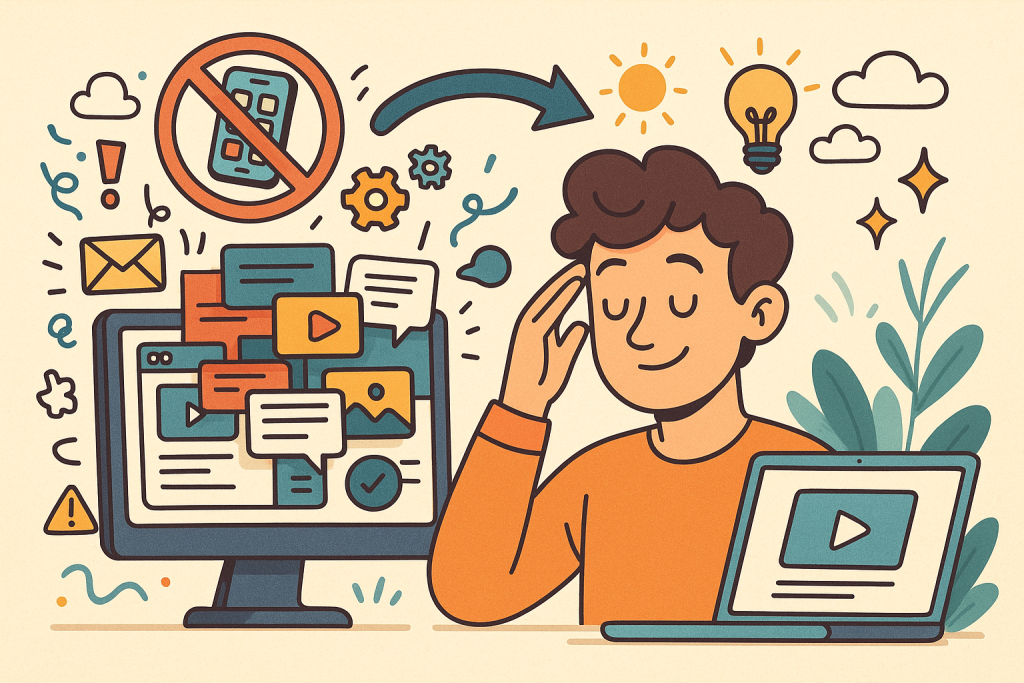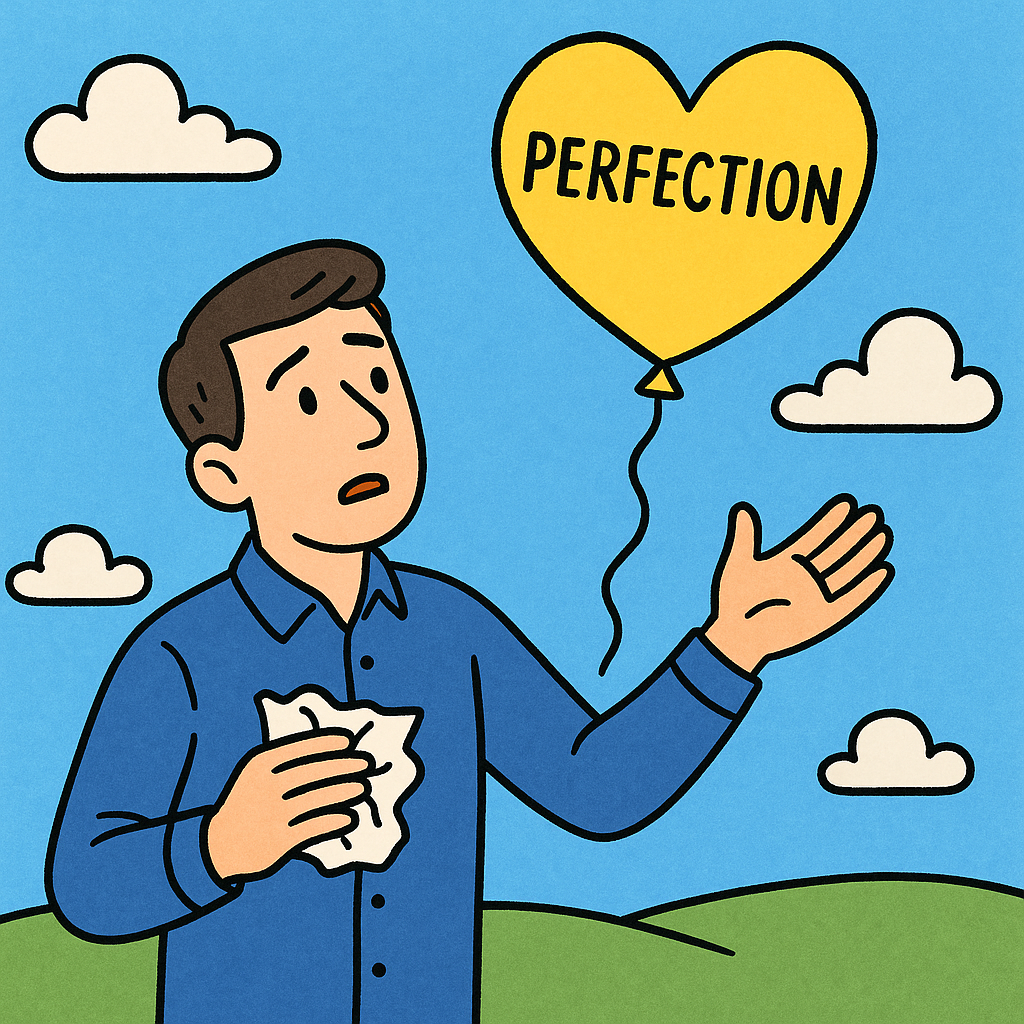Embracing the phrase “digital simplification” means curating and minimizing tech use so our minds have room to think. Let’s explore why digital simplification is the trending way to unlock mental clarity—and how you can start today.

The Problem: Digital Clutter Drains Our Focus
We’re living in an era of continuous partial attention, where every screen notification interrupts our thoughts. Research shows people switch tasks every few minutes, and after each interruption, it takes up to 30 minutes to refocus. This constant fragmentation not only delays productivity, but also exhausts our mental energy, leading to what psychologists call “directed attention fatigue”—a state where our ability to concentrate depletes over time.
One Australian study on notifications found people check their devices up to 50 times an hour—triggering dopamine releases that keep us hooked. The result? Higher stress, chronic distraction, and diminished sleep.
How Digital Simplification Clears Mental Fog
1. Reduces Cognitive Interruptions
Studies confirm that silencing or batching notifications reduces interruptions and cognitive strain. Instead of a ping every few minutes, turning off non-essential notifications means fewer breaks in thought and more consistent work flow.
2. Lowers Stress and Anxiety
A seven-day social media break resulted in noticeable improvements in mental health and less anxiety. Even batching notifications just three times daily led to reduced stress—but turning them off entirely sometimes heightened FOMO.
3. Enhances Focus and Creativity
Decluttering the digital space frees up attention that can shift to deep work or creative problem-solving. With fewer distractions, you reclaim mental bandwidth for more meaningful tasks.
4. Improves Sleep and Recovery
Screen time, especially late at night, suppresses melatonin, leading to poor sleep quality. Digital detoxes improve sleep, recovery, and cognitive restoration.
Emerging Trend: The Notification Detox
What It Is
A notification detox is a focused effort to control alert frequency. Instead of constant pings, users mute non-essential apps and set specific “check-in” times.
Research Insight
An experiment disabling all notifications for 24 hours found participants felt more productive, though some experienced anxiety or isolation—highlighting the importance of balance, not complete digital cut-off.
Trend in Action
“Phone-free February,” a trending challenge in Australia, encourages users to unplug for a month—reporting better concentration, sleep, and in-person relationships. This shows mass interest in digital simplification as a self-care practice.
Mental Clarity Starts with Practical Steps
Here’s a step-by-step guide to help you simplify digitally and clear mental clutter:
1. Audit Your Digital Life
- List all apps and notifications.
- Identify which add value vs. serve habit loops.
2. Turn Off Non-Essential Notifications
- Mute all but top-priority apps (e.g., messaging, calendar).
- Use “Do Not Disturb” during work hours or evenings.
3. Batch Your Attention
- Check email only twice a day.
- Set specific social media times to avoid constant pings.
4. Declutter Your Device
- Remove unused apps.
- Organize home screen with essential tools only.
5. Implement Tech-Free Zones
- No phones during mealtimes or in the bedroom.
- Consider charging devices outside the bedroom.
6. Use Alternative Media
- Replace late-night scrolling with reading, podcasts, or walks.
- Choose paper alternatives like paper planners or books.
7. Plan Digital Sabbaticals
- Try a weekend with no screens once a quarter.
- Join phone-free events/challenges for accountability.
Real‑World Wins from Digital Simplification
- Oxford academics’ framework (displacement, interference, complementarity) shows that mindful smartphone use supports well-being when apps complement rather than displace real life.
- Reddit testimonials share how following Cal Newport’s process led users to break social media addiction, reclaim their daily time, and achieve better mental clarity .
- Clinical psychologists confirm that turning off alerts reduces anxiety, helps focus, and strengthens relationships.
Why It’s Working: The Psychology Behind Simplicity
- Reduced Cognitive Load
Minimizing digital inputs frees up your brain, reducing the need to filter irrelevant stimuli and enabling deeper thinking. - Restored Self-Control
Every ignored notification builds self-regulation strength—you’re training your brain to focus on what matters. - Stronger Real Relationships
Social media may feel connecting, but it often dilutes face-to-face presence. Digital simplification reintroduces quality time. - Active Recovery
Giving the mind space—especially via rest, reflection, or nature—helps rebuild attention capacity .
Overcoming FOMO and Anxiety
- Balanced notification silencing (vs. total shutoff) avoids mental unrest, allowing essential alerts but reducing noise.
- Scheduled social check-ins ensure you stay connected without distraction.
- Mindful replacement activities (e.g., journaling, walking) refill attention and reduce the urge to scroll.
Looking Forward: Digital Clarity in a Tech‑Heavy World
Digital simplification isn’t just a trend—it’s becoming a mainstream lifestyle shift. Clinicians, employers, and schools are integrating clarity-first approaches:
- Mindfulness-based productivity tools
- Retreats centered on tech boundaries
- Policy shifts setting device-free zones in workplace and public spaces
These signals indicate a broad movement: rather than tech eradication, the future is about alignment—using digital tools in service of our goals, not vice versa.
Final Takeaway
- Digital simplification matters: it reduces noise, stress, and mental fragmentation.
- Small steps, big impact: begin with notification control, decluttering, and time batching.
- The result? Mental clarity, improved focus, better sleep, and deeper relationships.
By embracing digital simplification today, you’re reclaiming control of your mind and time—so your decisions, creativity, and well-being aren’t dictated by the next ping.
References
Psychreg. (2025). Why Digital Decluttering Can Improve Your Mental Clarity and Emotional Resilience. Retrieved from https://www.psychreg.org/digital-decluttering-improve-mental-clarity-emotional-resilience/
Kumar, S., & Nath, L. (2024). “Digital Minimalism” – A Study to Find Out Ways to Make the Best Use of Digital Technologies and Minimise its Ill‑Effects. ShodhKosh: Journal of Visual and Performing Arts, 5(1), 279–290. Retrieved from https://www.researchgate.net/publication
Raman, N. (2025). The Impact of Minimalism on Your Mental Clarity. Retrieved from https://neelraman.com/the-impact-of-minimalism-on-your-mental-clarity/






